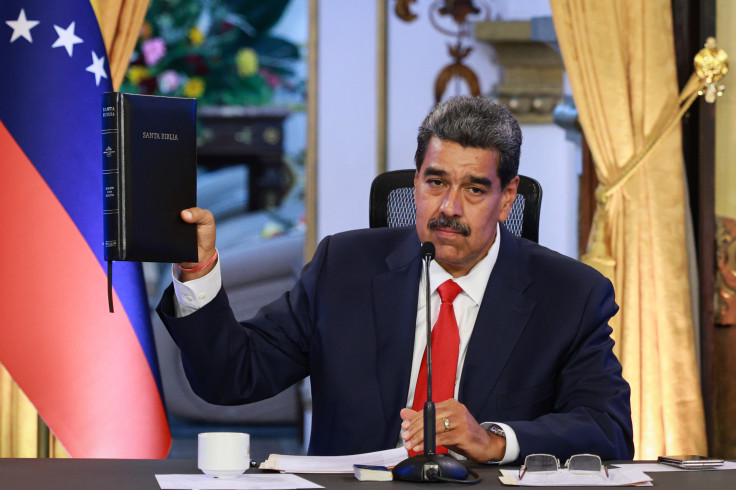
The bipartisan Banning Operations and Leases with Illegitimate Venezuelan Authoritarian Regime (BOLIVAR) Act, which was first introduced in February by Rep. Mike Waltz, R-FL, and Debbie Wasserman Schultz, D-FL, are expected to soon be up for a vote on the House floor after passing its first hurdle on the House Oversight Committee.
The bill will prohibit the U.S. from contracting with anyone with business ties to Nicolas Maduro's regime in Venezuela or any successor regime not recognized by the U.S.
If approved, the act would extend restrictions that prohibit the Department of Defense from contracting entities with ties to Venezuela since 2020, to the rest of the federal government, although contractors seeking to provide humanitarian or disaster relief can receive waivers.
"The United States must demonstrate solidarity with the brave opposition in Venezuela as they try to chart a new way forward, and we should deny the Maduro regime any resources it can use to continue its oppression of the Venezuelan people and cause such disruption in the entire hemisphere," Waltz said in a press release.
Likewise, Rep. Wasserman Schultz discussed the dangers of collaborating with Maduro and his allies, emphasizing the need for the BOLIVAR Act to pass the House floor.
"American taxpayer money should never further the reign of this narco-terrorist, directly or indirectly," she said in a statement. "Banning U.S. government agency contracts with anyone who does business with Maduro will stifle his support network and send another clear message that America will not tolerate this oppressive government or a leader who subverts his people and steals an election."
News of the proposed act comes as Florida lawmakers have put forward legislation that would set a reward of $100 million for information leading to the arrest or conviction of Maduro. Information leading to the arrest of the authoritarian leader is currently set at $15 million.
In March 2020, Maduro was charged by a New York court with narco-terrorism, conspiracy to import cocaine, possession of machine guns and destructive devices, and conspiracy to possess machine guns and destructive devices.
The bill is being led in the senate by Sens. Rick Scott, R-FL, and Marco Rubio, R-FL, and in the house by Reps. Mario Diaz-Balart, R-FL, and Schultz.
"The time has come for Venezuela to be liberated from the illegitimate regime of dictator Nicolas Maduro," said Scott in a statement. "For years, I have urged the Biden-Harris administration to put the full weight of the federal government to put an end to the Maduro regime, but it has refused and continued its failed appeasement that has only enriched and emboldened Maduro and his puppet masters in Cuba at the expense of the Venezuelan people."
The proposed measures, set to pressure Venezuela, also come after a tumultuous election cycle that saw Maduro claiming a win, despite not providing the necessary documentation to deem their win as legal.
Continued tensions and coercion from the Maduro regime to opposition leader Edmundo Gonzalez Urrutia escalated in recent weeks, eventually leading the challenger to flee the country and seek political asylum in Spain.
© 2025 Latin Times. All rights reserved. Do not reproduce without permission.




